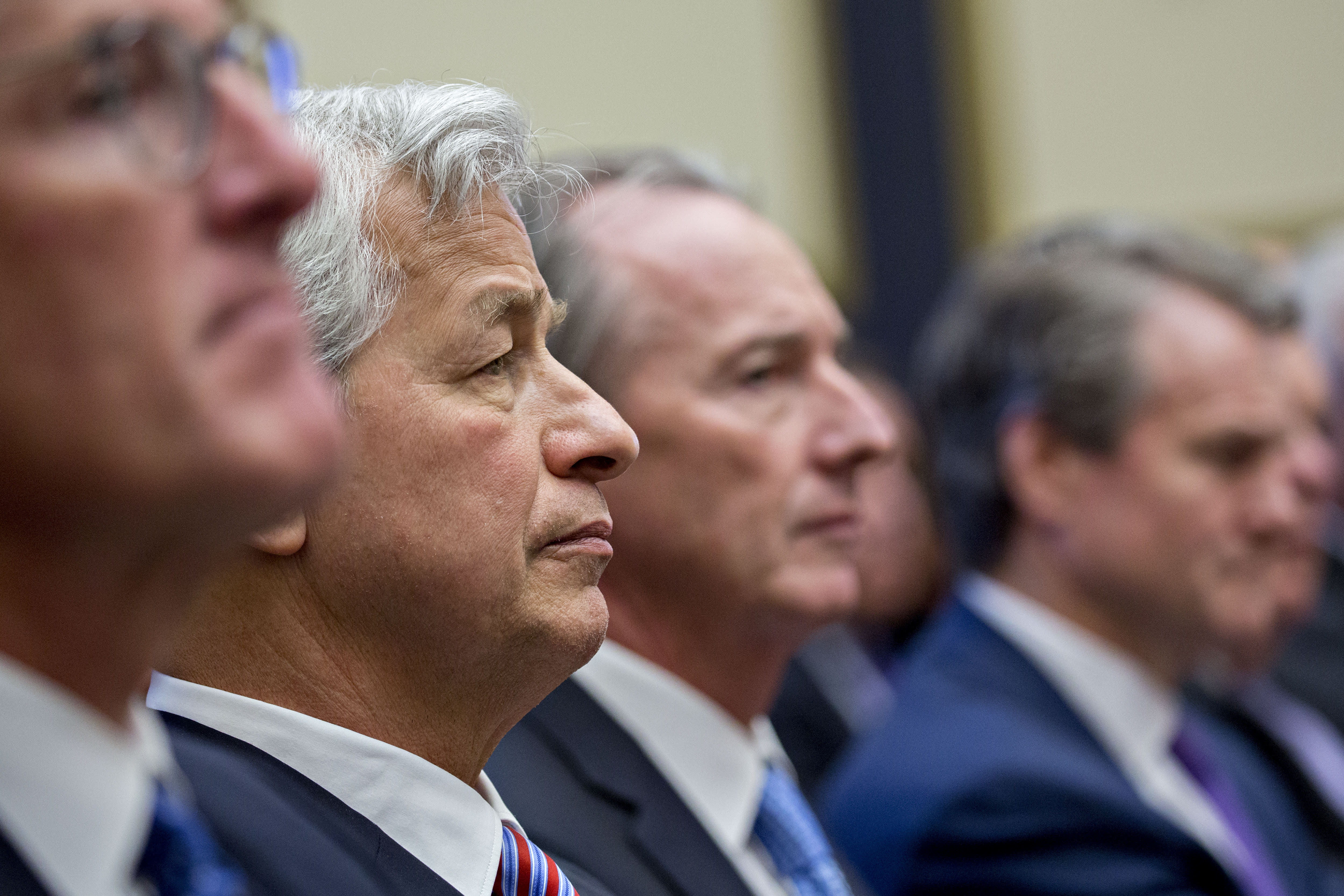Jamie Dimon, chief executive officer of JPMorgan Chase & Co., second left, listens during a House Financial Services Committee hearing in Washington, D.C., U.S., on Wednesday, April 10, 2019.
Andrew Harrer | Bloomberg | Getty Images
JPMorgan Chase and Citigroup were among the first major financial firms to say they will pause political action committee donations after followers of President Trump laid siege on the U.S. Capitol last week.
JPMorgan, the biggest U.S. bank by assets, is pausing contributions for both Republicans and Democrats for “at least” the next six months, according to spokesman Steve O’Halloran. The New York-based bank will use that time to consider potential changes to its political-donation strategies.
“The country is facing unprecedented health, economic and political crises,” JPMorgan head of corporate responsibility Peter Scher said in a statement provided to CNBC. “The focus of business leaders, political leaders, civic leaders right now should be on governing and getting help to those who desperately need it most right now. There will be plenty of time for campaigning later.”
Spurred on by the Jan. 6 riots in which five people lost their lives, corporations including Marriott International and the Blue Cross Blue Shield insurance group have said they would stop giving money to Republican lawmakers who backed efforts to disrupt the certification of President-elect Joe Biden‘s victory. But banks, rather than targeting and potentially alienating members of the Republican party, have instead moved to halt donations to all lawmakers, for now at least.
The moves were part of the larger fallout from a shameful episode that forced American corporations to come to terms with how to respond. Technology companies including Twitter, Facebook and Amazon have made moves to limit the spread of disinformation that could incite more violence.
Political action committees pool employee donations and can direct up to $5,000 to a candidate per election, as well as $15,000 annually to any national party committee. Since the money is raised from voluntary employee contributions, the move sidesteps federal laws that prohibit companies from giving money directly to candidates.
Citigroup is also pausing PAC donations to all lawmakers during the first quarter, the bank told employees Friday in an internal communication.
“We want you to be assured that we will not support candidates who do not respect the rule of law,” Candi Wolff, head of global government affairs, said in the memo. “We intend to pause our contributions during the quarter as the country goes through the presidential transition and hopefully emerges from these events stronger and more united.”
Bank of America spokesman Bill Halldin said that the “appalling violent assault on the U.S. Capitol” will factor into donation decisions for the 2022 midterm elections.
Goldman Sachs, Morgan Stanley and Wells Fargo representatives didn’t immediately respond to messages over the weekend.
This story is developing. Please check back for updates.
